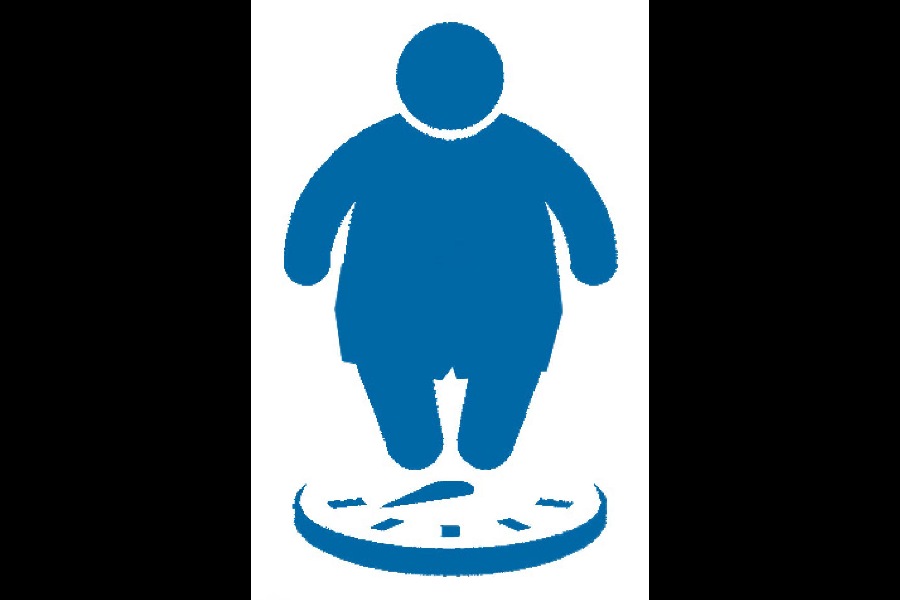People under age 50 are at significantly enhanced risk for a heart attack or a stroke if they have been obese for 10 years or longer, researchers said on Saturday, flagging the preeminence of the cumulative years of obesity over single-point measurements.
Their study has found that women younger than 50 and men younger than 65 who have been obese through a 10-year period have a 23 per cent to 60 per cent increased risk of a heart attack or a stroke. A cumulative high body mass index (BMI) — a measure of overweight or obesity — was more important than single-point BMI measurements at the start of the study.
“These findings mean that obesity at any point in time does not seal one’s fate,” Alexander Turchin, an associate professor of medicine at the Harvard Medical School, Boston, and the study's lead author said in a media release. “If obesity is treated in time, its complications can be prevented.”
Multiple earlier studies have established that people who are overweight or obese at any point in time have a greater risk of heart attacks or strokes. But how, if at all, the number of years of obesity might impact this risk had been unclear.
Turchin presented the study’s results at the annual conference of The Endocrine Society, a professional society of endocrinologists, in Boston on Saturday.
In the industry-sponsored study, Turchin and his collaborators, including researchers at Eli Lilly used health data from over 138,000 people followed up since 1990. They analysed their BMI values between 1990 and 1999 and tracked any incidence of heart attacks or strokes between 2000 and 2020.
The researchers found 12,048 such cardiovascular events among the participants. Men and women in the highest BMI quartiles — the top 25 per cent of the BMI values — had 23 per cent to 60 per cent greater risk for a heart attack or a stroke than those in the lowest BMI quartile, depending on their age and sex.
An elevated BMI at baseline — the first BMI reading of the participants — was not associated with an increased risk of a heart attack or a stroke. The researchers say the findings underscore the importance of cumulative excess BMI over any single-point measurements.
“These results come from excellent data and have huge implications for the public, especially younger people,” said Ambrish Mithal, head of endocrinology at the Max Healthcare hospital, New Delhi, who was not associated with the study but was among the endocrine conference audience in Boston on Saturday.
“This is great motivation for losing weight — those who have been overweight or obese for a few years can lower their risk through weight loss,” Mithal said.
The US study also found that obesity in women older than 50 and men older than 65 was not associated with an enhanced risk for heart attacks or strokes. The researchers say the findings highlight the need for early efforts to reverse overweight or obesity.
“The absence of enhanced risk in the older age groups isn’t surprising,” Mithal said. “As age takes over, other factors play a bigger role (in cardiovascular risk) and obesity is probably less important than in younger ages.”
The Union health ministry's latest National Family Health Survey of 2019-21 had suggested that 24 per cent of women and 22.9 per cent of men in the 15-49 age group are overweight or obese, with BMI values of 25 or higher.











